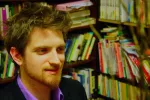
Almost Wikipedia: What Eight Collaborative Encyclopedia Projects Reveal About Mechanisms of Collective Action
Benjamin Mako Hill, Berkman Center & MIT
Tuesday, October 11, 12:30 pm
Berkman Center, 23 Everett Street, Second Floor
From Benjamin Mako Hill:
I'm going to present some preliminary findings from a qualitative, inductive, case-study based analysis of 8 early projects to create online collaborative encyclopedias. It's quite likely that the only project in my dataset that you've heard of is Wikipedia. I'm am still finishing interviews but I'm hoping I can use feedback from the group to help frame the work going forward.
My initial results are based on data from 8 projects -- the full population -- in the form of interviews of the projects' founders and extensive archival data. My findings are a set of propositions focused on suggesting why Wikipedia succeeded in attracting contributors while the other projects did so less effectively. In a follow-up project, I'm hoping to test these in a quantitative dataset I've been building.
The project is part of a larger research project that attempts to use failure cases to understand why some attempts at online collective action are successful while most never take off.
About Benjamin Mako Hill
Benjamin Mako Hill is an scholar, activist, and consultant working on issues of technology and society. He is currently a researcher and PhD Candidate in a joint program between the MIT Sloan School of Management and the MIT Media Lab, a fellow at the Berkman Center for Internet and Society, and a Research Fellow at the MIT Center for Future Civic Media. His research focuses on social scientific analyses of social structure in free culture and free software communities. He has been an leader, developer, and contributor to the Free and Open Source Software community for more than a decade as part of the Debian and Ubuntu projects. He is the author of several best-selling technical books, and a member of the Free Software Foundation board of directors. He is an advisor to the Wikimedia Foundation and the One Laptop per Child project. Hill has a Masters degree from the MIT Media Lab.
Links
You might also like
- communityThe Digital Panopticon Nightmare
- communityComparing Apples to Oranges
